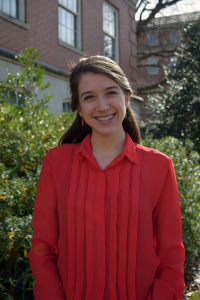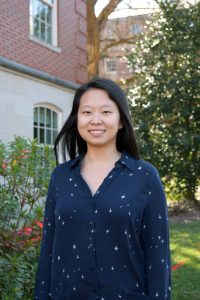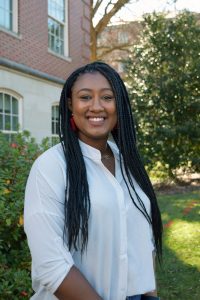Cohort 2 (2020) of our Global Health Scholarly Concentration
Amir Feinberg
Class of 2023

Growing up in a multicultural household, Amir was always interested in how different cultures, religions, and countries interacted with each other. He completed a degree in International Relations at Boston University, but was inspired to merge his path with the medical field after reading Paul Farmer’s Infections and Inequalities. The book sparked Amir’s interest in global health by showing how modern plagues in developing countries are not only infectious, but social and that in the current age of globalization, disease knows no borders.
After graduating from his undergraduate institution, Amir traveled to the Republic of Moldova where he served as a Peace Corps Volunteer for two years. He lived in a small, post-Soviet village teaching health education at the elementary and middle schools and worked with the local health clinic to design/co-lead seminars based on public health topics ranging from healthy eating habits to alcoholism to tuberculosis. Additionally, he worked with national organizations to raise awareness of human trafficking as well as the human rights among minority communities in Moldova. Amir is interested in pursuing research in emergency medicine and how community health education affects incidence of traumatic health outcomes in rural populations.
Cate Hendren
Class of 2023

Where you are born should not determine the care you get. This phrase is the motto of Wuqu’ Kawoq, a non-profit healthcare organization for which Cate worked, and it is her motivation for pursuing a career in global health. Cate was a Latin American Studies major as an undergraduate at Davidson College. This discipline drove her to consider how geographic location and economic reality shape healthcare access and outcomes.
Her academic coursework combined with experiences abroad drove her to pursue work in healthcare access once she graduated from college, first in Western North Carolina and then in Honduras and Guatemala.
In each of these settings, Cate saw that too often geography dictates fate. Particularly formative experiences include: in Peru, volunteering with kids during their long hospital stays for congenital bone deformities, in Honduras, interpreting for a woman in labor during a complicated delivery, and in Guatemala, designing a legal aid referral program for patients experiencing domestic violence. In each instance, the people she met who suffered most were those who found themselves vulnerable, because they were poor, socially marginalized, or lived in a place in which care was not broadly available.
As a physician, Cate aims to provide care for all people regardless of their language or place of origin and to work towards healthcare systems that serve people equitably. At UNC, she organizes monthly blood pressure and glucose screenings at a Spanish-speaking church in Durham, is a member of the palliative care interest group, and continues to nourish her Latin-American-Studies roots through CAMPOS, a UNC initiative which trains medical students to be bilingual and bicultural physicians through Spanish-language medical training and volunteering in the local community.
Erin Xu
Class of 2023

In the Spring of 2003, while attending school in Beijing, Erin witnessed firsthand how SARS overtook the city at unprecedented speed. Her personal experiences and the rapid trend of global urbanization sparked her interests in urban epidemiology. She is interested in how public health regulations, urban infrastructure, and medicine can contribute to rapid disease containment in an urban environment. Specifically, Erin wants to focus on the effects of climate change and how best to combat its harmful effects on the spread of disease within urban centers.
Her liberal arts education at Davidson College allowed her to explore the scientific and the societal side of medicine at home and abroad. Erin’s experience working in rural Honduras provided a valuable perspective on how to tackle global health problems at the community level. Her research experience in Germany also led her to realize the importance of collaborating with scientists from different regions of the world. She would like to work towards a career in disease outbreak prediction and control in an increasing urbanized global society where the threats of climate change are beginning to take center stage.
Santiago Bejarano Hernandez
Class of 2023

Santiago had never heard of global health before stumbling into an introductory class during his first year of undergraduate studies. This new topic seemed to bring together his interest for science and health with his identity as a first-generation Latinx immigrant. For the following four years, Santiago pursued this newfound passion by taking courses within global health ranging from research and methods to medical anthropology. This work culminated with a senior global health capstone poster and an honors thesis in Transnational Latinx Migration in cultural anthropology. Outside of class, Santiago occupied his time with work-study jobs in both cultural anthropology and global health.
Between graduation and medical school, Santiago worked for almost two years at the Duke Cancer Institute on an SMS text-based smoking cessation intervention for pregnant women. This was followed by jobs in the medical field as an EMT, a phlebotomist, and an overnight emergency room technician at Duke University Hospital.
Santiago continues to combine his academic endeavors with his personal experiences through his extracurricular involvements and his global health projects. Currently, Santiago is pursuing his medical degree while serving as Co-President of the Latino Medical Student Association. He hopes to pursue further interests in the field of emergency medicine and eventually apply them as a global health physician in the United States and in South and Central America.
Sophia McFarlane
Class of 2023

Sophia desires to become a global social justice advocate who works to provide resources on an international scale to communities challenged by threats to their health, particularly communities of color and other marginalized groups. She sees herself as a community health activist and a physician who serves in an underserved community either domestically or internationally. Sophia wants to research how social structures and systemic oppression influence the health of marginalized populations on a global scale.
As a Moorehead-Cain Scholar, Sophia worked with the Foundation for International Medical Relief of Children as a community health liaison and developed a female empowerment program called Chicas Maravillas, Wonderwomen, which offered nutrition and sexual health/family planning training. She also received funding to engage with public health officials and nonprofits combating HIV/AIDS in South Africa and Swaziland, such as Mothers2Mothers, ICAP, PEPFAR(U.S. President’s Emergency Plan for AIDS Relief), and Baylor International Pediatric AIDS Initiative.